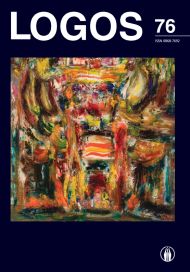Matematinės Mokslo Kalbos Paradigmos Formavimasis Epistemologiniuose Tyrimuose
The Formation of the Paradigm of Mathematical Language of Science in Epistemological Investigations
Author(s): Nijole AukštuolyteSubject(s): Pragmatics, Cognitive linguistics, Philosophy of Science, Philosophy of Language
Published by: Visuomeninė organizacija »LOGOS«
Keywords: language of mathematics; formalistic investigations on language; criticism of natural language;
Summary/Abstract: The paper analyses how theoretical thought determined the language of mathematics as the paradigm of scientific language and how it entrenched formalistic investigations in the epistemological analysis of language. The tendency to formalistic investigations of language in philosophy is based on the mathematical reflection of the world as well as on the criticism of natural language as suitable for cognition. The analysis of the works by Leonardo da Vinci, Galileo Galilei and Rene Descartes showed that mathematics is perceived not only as an instrument and model for knowledge acquisition, but also as a language which mastersthe possibilities for the study of nature. Of no less importance is the criticism of the possibilities of natural language for cogntion in the philosophy of Francis Bacon, John Locke and Thomas Hobbes. These philosophers focused on the significance of signs and how it directed the philosophers’ efforts towards the search of the proper language for science. The realization of Rene Descartes’ idea of the universal language of science in Gottfried Wilhelm Leibniz’s “Characteristica Universalis“ indicates the prominence of the formalistic investigations of language and the possibilities of cognitive forms. The paper stresses how the methodological aspect of the formal investigations of the language developed into the complex theories of linguistic determination of knowledge and raised the problem of epistemological possibilities for the formalistic conception of language.
Journal: LOGOS - A Journal of Religion, Philosophy, Comparative Cultural Studies and Art
- Issue Year: 2013
- Issue No: 76
- Page Range: 69-81
- Page Count: 13
- Language: Lithuanian

